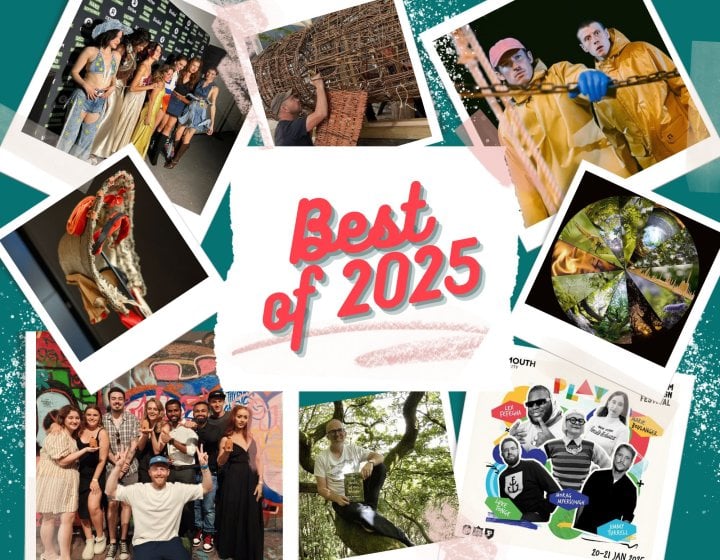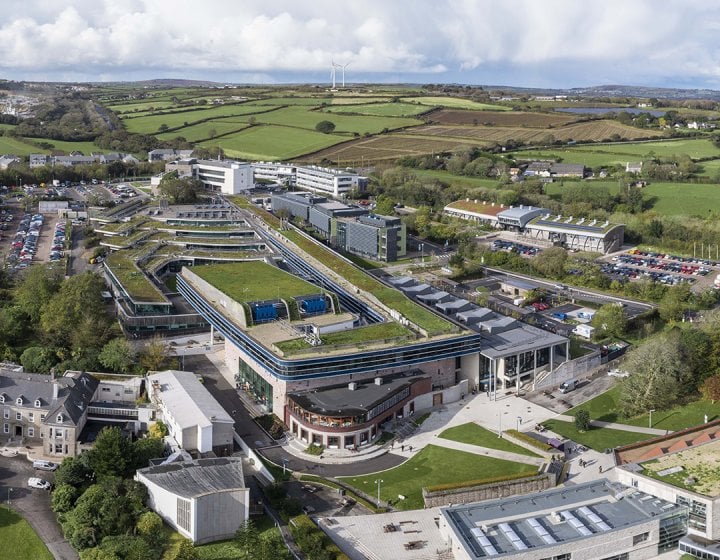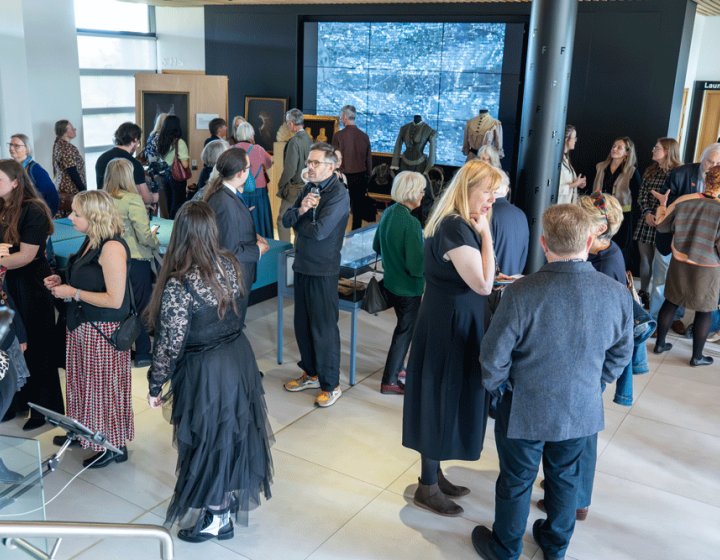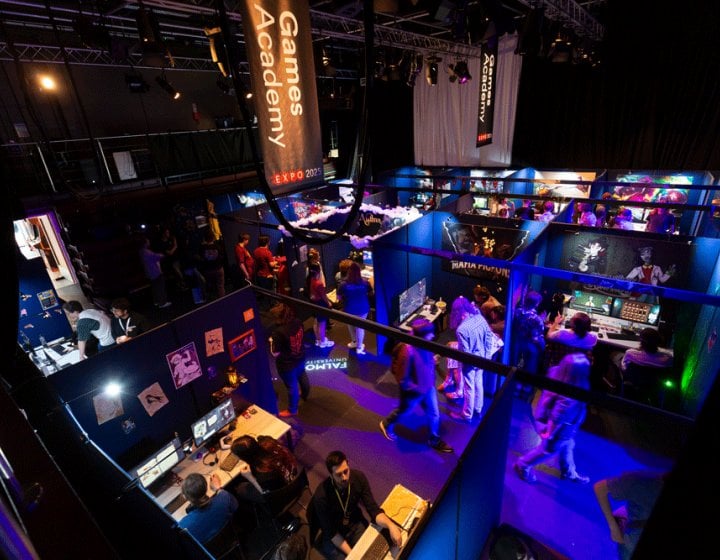Regional Voices, Universal Stories: How Falmouth’s Sound/Image Cinema Lab is shaping the future of film
16 October 2025
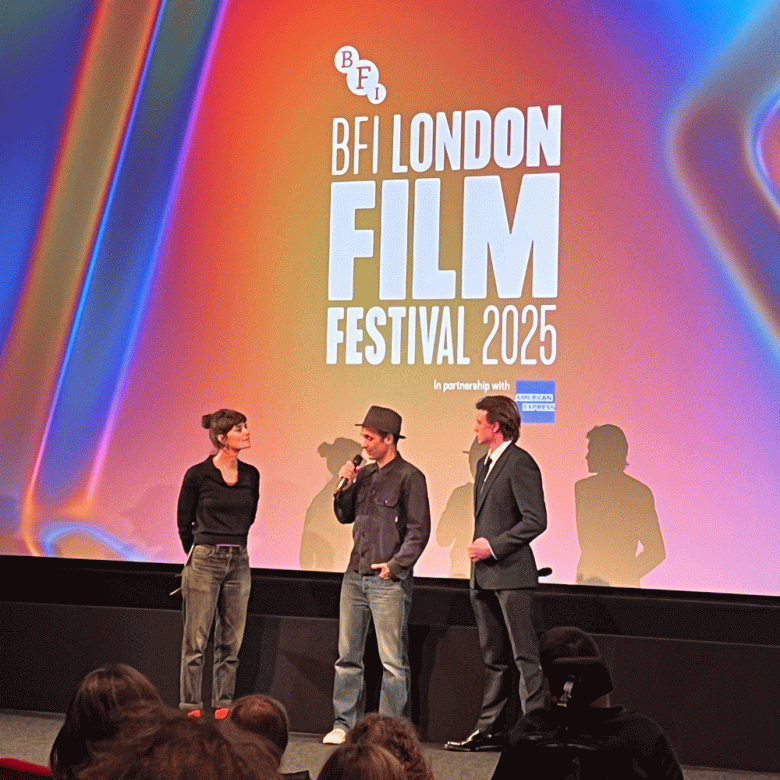
As Rose of Nevada, which had more than 30 film students performing key roles on its production, screens at the BFI London Film Festival, Dr Kingsley Marshall and Professor Neil Fox reflect on our School of Film & Television’s approach to creating an environment that is both innovative yet rooted in the historical spirit of indie filmmaking.
With the film world gathered at the London Film Festival, a film rooted far from the capital is demanding attention by telling a story that connects the experience of individuals and communities across the country.
Rose of Nevada is the latest feature from BAFTA-winner and Falmouth’s Distinguished Professor of Film Practice Mark Jenkin (Bait, Enys Men), and premieres at the BFI London Film Festival this month. Starring Callum Turner (Eternity, Masters of the Air) and George Mackay (1917, Pride) it is a film that speaks to the importance of authenticity and the connective power of regional stories.
The film is set in a Cornish fishing village, driven by the performance of an actor who grew up on a London council estate; written and directed by a unique authentic Cornishman who eschews modern techniques so he can trust that what he sees with his eye is not reinterpreted, in ways unknown, by a digital camera.
Rose of Nevada is also a film partly made possible by a unique partnership with Falmouth University’s Sound/Image Cinema Lab – a project that enables risk taking and provides real world opportunities for student filmmakers.
For us at Sound/Image Cinema Lab (S/ICL) this moment is about more than a single film. It’s about what film and television schools can and should be doing to nurture authentic, distinctive voices that speak to audiences at local, regional, national and global levels.
Since 2022, S/ICL productions have been selected for some of the world’s most prestigious film festivals - Cannes, Berlin, Venice, Toronto, New York, Fantastic Fest, London, Encounters, Aesthetica, FrightFest, Sheffield DocFest - and been released in cinemas and on streaming platforms globally.
These productions have involved our students contributing their skills in key roles, in a unique collaboration that stretches far beyond pre-existing ideas of student placements.
Why regional voices matter
Cornwall’s culture, history and landscape is unique, but it also offers fertile ground for filmmakers to craft stories that resonate universally. Jenkin’s Bait put a working-class fishing town struggling with a fast-changing world on the international stage and was celebrated for its honesty, with Mark Kermode declaring it “one of the best British films of the decade”. In his Observer review, Rose of Nevada continues this thread in a ghost story that embeds community history with the day-to-day life of the here and now.
Stories made here emerge from lived experience and, while the specific elements may differ, they speak authentically to universal experiences that cut across boundaries. If the story on the screen is authentic, whether it’s life in a Cornish harbour or a London estate, audiences will relate that to their lives.
Rethinking the role of film schools
At Falmouth, we think carefully about the role of a film and television school in the modern filmmaking landscape. Technical training and meeting skills gaps is important, but on its own it isn’t enough. Our culture is driven by a belief that universities must empower individuals to understand what their creative voice is, how they can best express it and how they can share that with people.
Film and television schools are more than pipelines for industry-standard skills. They are hot houses for experimentation, risk-taking and authenticity. That’s where the emergent and distinctive voices that shape cinema’s future will come from.
That’s why we built the Sound/Image Cinema Lab, a model that puts students directly into professional environments, working on real productions. To date, we’ve invested in films that may otherwise not have been made and partnered with production companies globally, embedded our students and staff in the crews, to create an environment of collaboration and knowledge exchange that is both innovative yet rooted in the historical spirit of indie filmmaking.
The result takes students beyond technical proficiency into confidence: graduates leave as professionals who have already been a part of making distinctive, independent films – a 360-degree filmmaking education, where they already take their place in a commercial and industrial setting.
Through this work with the Sound/Image Cinema Lab, Falmouth University has developed educational relationships with leading effects studio Neill Gorton Prosthetics and Action Xtreme, a production studio partnered with Sovereign Film, designing postgraduate courses which speak directly to the leading industry practice. MA Feature Filmmaking is a unique postgraduate course that guides students from script development and pre-production through to physical production, post-production and finally delivery of a fully financed feature film production. Not as placements, but as fully fledged heads of production, wrapped around their studies, and is the only course of its kind in the UK.
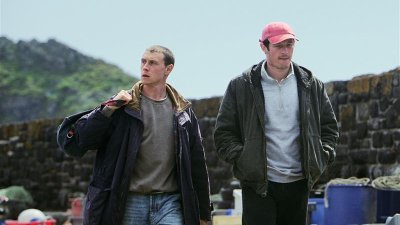
Looking forward
What happens in Cornwall has national and international implications. In an industry that is facing rapid technological change and uncertainty, film and television schools have a responsibility to nurture authentic voices and prepare students to navigate both the creative and ethical challenges ahead.
Rose of Nevada once again shows the power of regional storytelling on the global stage. However, beyond the spotlight lies something more important: a growing community of filmmakers, shaped by a film and television school where community, authenticity and experimentation are embedded in its culture.
What we have demonstrated at Falmouth, through our work with Mark Jenkin and other filmmakers is that students here are in an environment that enables them to find and trust their own voices, have pride in where they are from and who they are and share stories from their communities in ways that entertain and engage audiences the across the world. From the edge of the British Isles you can find the space to grow an authentic voice, one that is yours and through which you can speak of shared experiences and shine a light on where the UK screen sector is headed, across the country, and the world.
